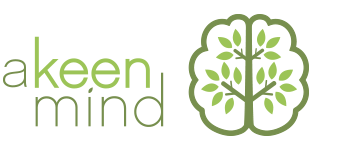Healing from Trauma in the Wake of Disaster: Practical Tools for Coping After Hurricane Helene
By Jude Johnson, MA, LMFT – A Keen Mind

In the aftermath of Hurricane Helene, I am deeply saddened for the many individuals and families grappling with trauma in the face of unimaginable devastation and continued uncertainty about the future. Roads have been washed away, homes destroyed, and over 200 lives lost across the Southeast, with more than half of the victims from North Carolina. Countless people are without basic resources like running water and electricity, with no clear timeline for when these vital services will return. This uncertainty can lead to feelings of overwhelm and panic, especially when our most basic needs are unmet. Trauma runs deep—not only on a physical level but also emotionally and psychologically.
As I reflect on the devastation, I’m reminded of how much Western North Carolina feels like a second home to me. For over 40 years, I’ve spent time there swimming,hiking, camping, fishing, meditating and making memories with family and friends. My heart goes out to everyone affected by this disaster, and I want to offer my deepest compassion along with practical guidance for navigating these painful and uncertain times. Drawing on the insights of trauma experts like Peter Levine, Gabor Maté, and David Grand, the founder of Brainspotting, my goal is to provide you with tools to help regain a sense of stability, even in the face of profound loss.
Trauma’s Impact on the Body and Mind
Trauma doesn’t just impact the mind—it lives in the body. When you’ve experienced something as catastrophic as a hurricane, your body may remain in a heightened state of alert long after the storm has passed. According to Peter Levine, trauma can leave your nervous system stuck in survival mode, making it hard to find calm. The stress of losing your home, community, and access to basic resources like water and electricity only deepens this strain, making it feel like you’re fighting an ongoing battle.
Acknowledging the Weight of Your Loss
In times like these, it’s natural to focus on survival and push aside the emotional toll. Gabor Maté teaches us that trauma needs to be acknowledged for the healing to begin. Whether it’s the loss of a loved one, your home, or your sense of security, these experiences leave deep emotional wounds. It’s okay to feel overwhelmed, to grieve, and to acknowledge the pain—because doing so is an essential part of the healing process.
Practical Steps for Coping with Trauma After a Disaster
While recovering from trauma may feel like a long and difficult road, there are small steps you can take now to begin healing. These practices are designed to help you navigate the overwhelming feelings of fear, grief, and uncertainty.
1. Ground Yourself in the Present Moment
Trauma often disconnects us from the present, but bringing awareness to the body can help create a sense of safety. David Grand, the creator of Brainspotting, emphasizes that by focusing on bodily sensations, you can begin to release some of the trauma stored in your nervous system. Start with small grounding exercises: feel your feet on the earth, take deep breaths, and notice the physical sensations around you. These simple practices can help shift your focus from fear to a sense of stability.
2. Seek Connection, Even in Small Ways
In times of crisis, it’s common to feel isolated, but connecting with others, even for a brief moment, can reduce the sense of loneliness. Richard Schwartz’s Internal Family Systems approach reminds us of the importance of relationships, both with others and with ourselves. Reach out to someone who understands or is going through the same experience—it could be a family member, a neighbor, or a relief worker. Knowing that you’re not alone, even in a disaster, is a powerful step toward healing.
3. Move Your Body to Release Tension
Trauma often gets stored in the body, and movement can help release some of that tension. Even small, gentle movements like stretching or taking a slow walk can help relieve the physical weight of stress. You might also experiment with shaking your body—loosening your shoulders and arms while bouncing up and down—as a way to release built-up tension. Whether it’s stretching, walking, or simply raising your arms above your head, these simple actions can help you reconnect with your body and feel less burdened by the emotional and physical weight of trauma.
4. Set Healthy Boundaries with Media
While it’s important to stay informed, constant exposure to distressing news can amplify feelings of helplessness. Limit your media intake to protect your mental and emotional health. Instead, find moments of calm by listening to soothing music, practicing mindfulness, or simply taking a few minutes to breathe deeply. These moments of stillness will help counterbalance the stress of the ongoing disaster.
5. Practice Compassion Toward Yourself
In times of crisis, self-compassion is often the last thing on our minds, but it’s critical to your emotional well-being. Gabor Maté encourages us to treat ourselves with kindness, especially when we’re struggling. It’s okay to feel exhausted, scared, or uncertain—it’s a normal response to trauma. Allow yourself to rest when you can and remind yourself that you’re doing the best you can under unimaginable circumstances.
Finding Hope and Healing
Recovery from Hurricane Helene won’t be an easy road, and the trauma you’ve experienced may feel overwhelming right now. But healing is possible, and you don’t have to navigate this journey alone. Whether you find comfort in these small practices, lean on loved ones, or reach out for professional support, know that taking any step—no matter how small—moves you closer to healing.
As you navigate the path to healing, mindfulness can be a powerful tool. For those seeking practice guidance, listen to Podcast #41, where I led you through a guided meditation designed to help you relax and quiet down your thinking, even when you have gone through a loss or a traumatic event.
At A Keen Mind, I am here to provide trauma-informed support to those who need it. If you’re struggling and looking for a path forward, reach out for help. Whether through Brainspotting, mindfulness-based therapies, or compassionate listening, we can work together to help you recover and rebuild after this disaster.


